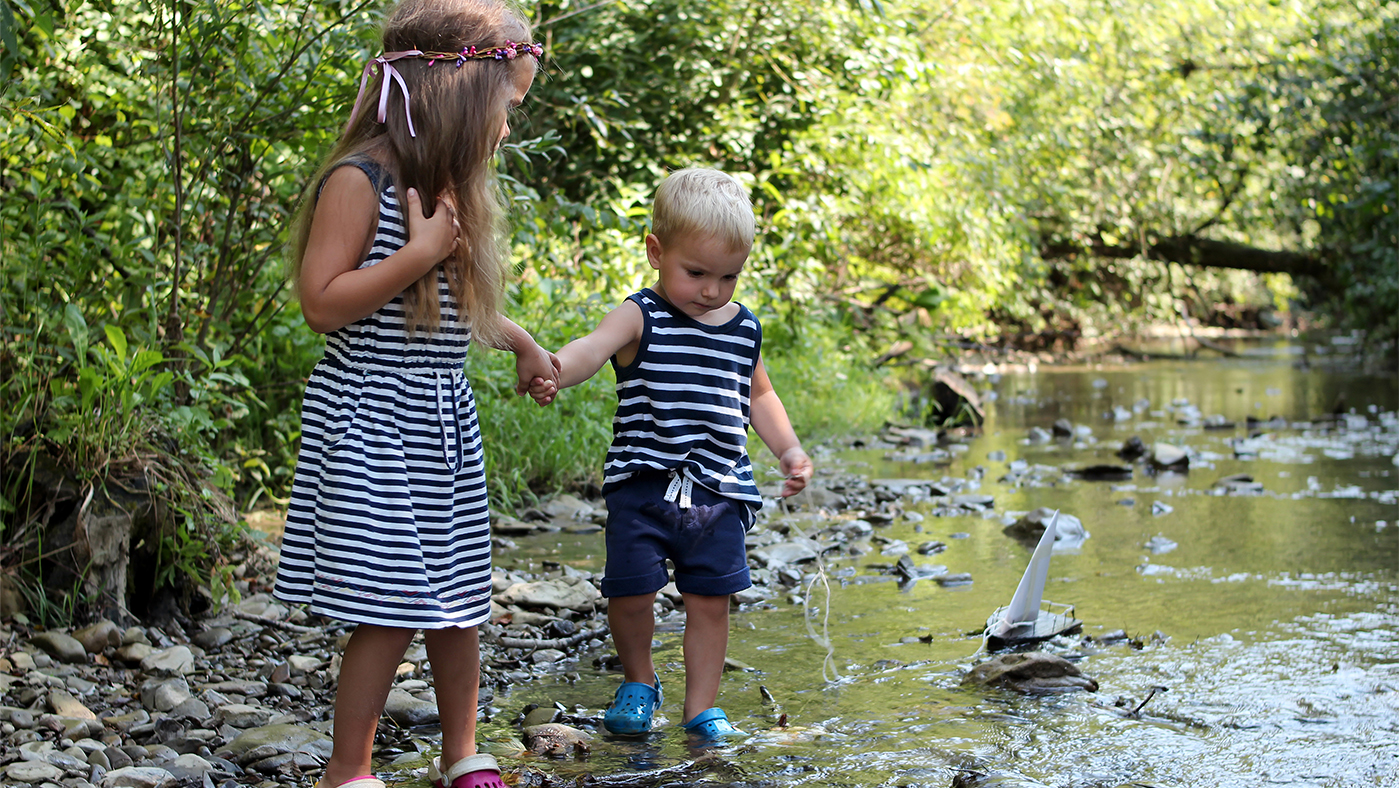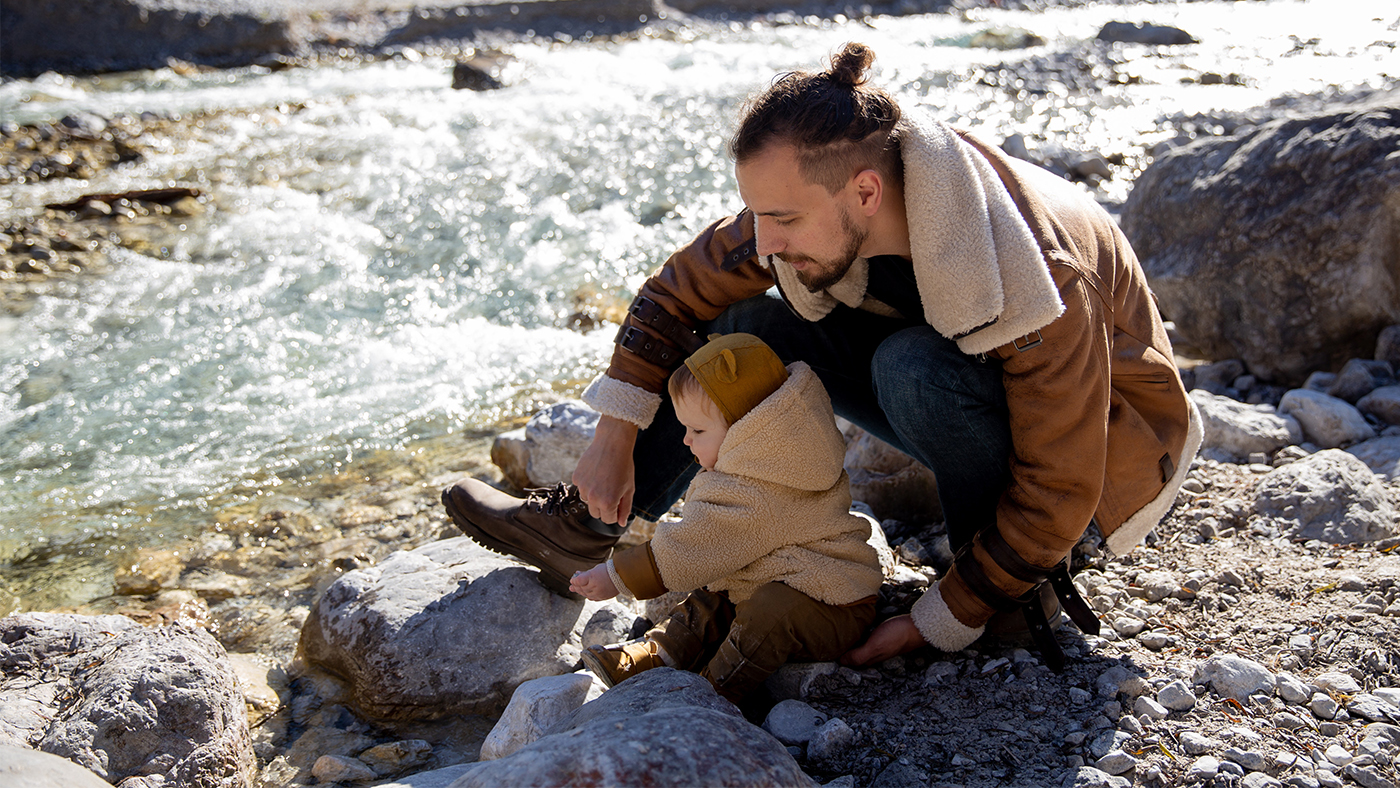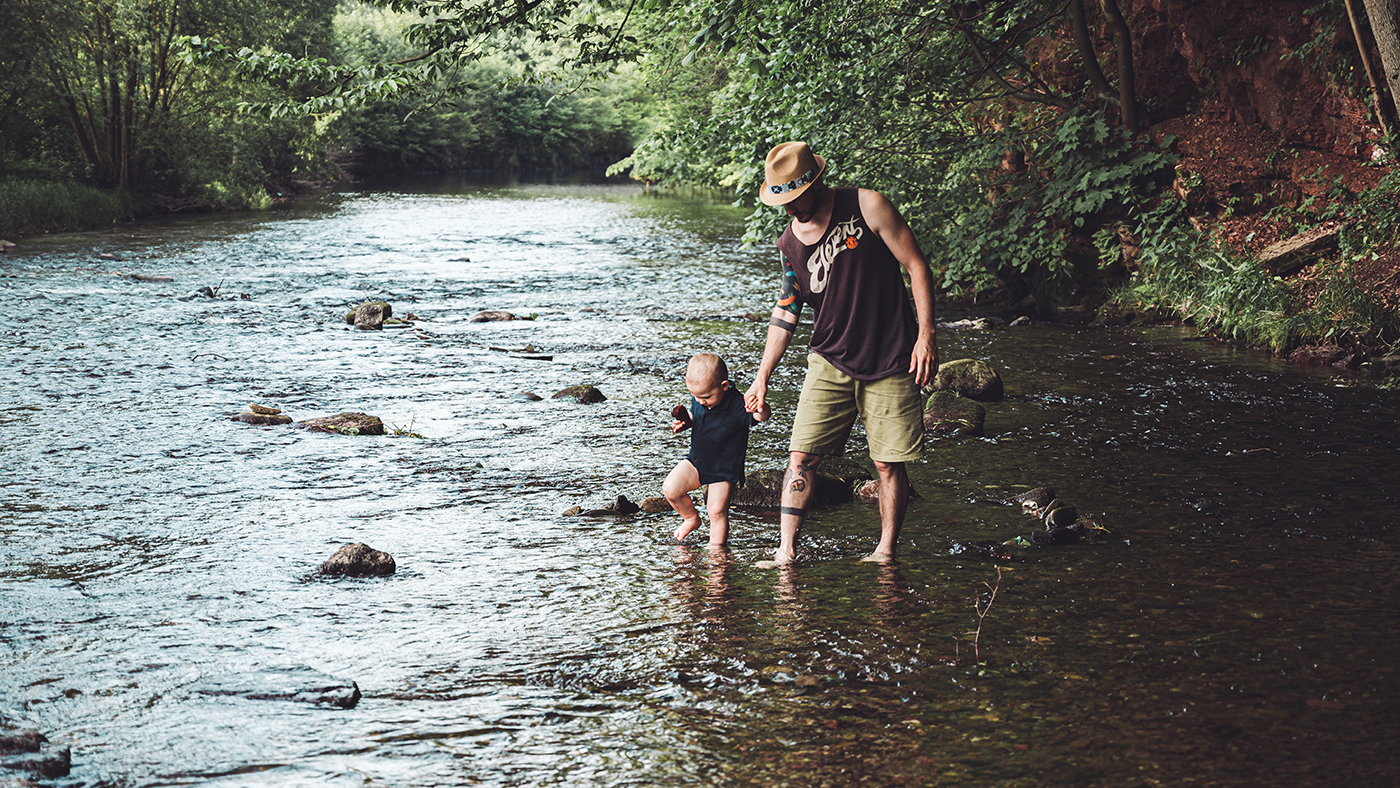"Splish, splash" - learning and exploring by the stream
- Cognitive,
- Outdoors,
- Water Play

The great outdoors is a fantastic learning resource for young children, which can help them learn across many areas of their development. Water is a great tool to help with development and discoveries in many aspects of learning, including cognitive development.
What is cognitive development?
Here are My First Five Years, learning is split into six streams. One of these streams is cognitive development. Cognitive development is all about processing ideas and developing knowledge. This area of development is all about remembering and understanding the information given and using this knowledge to interact with the environment.[1] Here are ideas for activities to carry out with your child outdoors that involve water. This could be streams, ponds, and even water play set up in your garden!
Throwing (pooh sticks)
Pooh sticks is a classic game that can be played together as a family, with many generations enjoying it to this day. It involves collecting a stick, dropping it into water from a bridge and watching its journey. Pooh sticks can support cognitive learning in young children in many ways. It helps children to understand the idea of cause and effect. For example, the stick that they throw will have an impact on the water, and the size and shape of the stick may have an impact on the speed or journey that it makes.[2]
While playing pooh sticks and similar games, children may start to use their memories to support their play, which is a key aspect of cognitive development. They may remember that when they used a big stick, it got stuck, and therefore they will look for a smaller stick to throw next time.
Dam building
Dam building is an activity that promotes problem solving in young children. When making a dam, your child will have to plan out their idea and even test it to ensure that it is successful. As well as considering the best way to structure a dam, they will have to think about what materials are best for the job, too. This is linked to trial and error skills, as well as memory, which will help them decide how to build their dam[1].
As well as this, children will also have to consider how to keep themselves and others safe. When building a dam, they may recognise risks such as being careful around the edge of the water, and how to carry and collect materials safely, without accidentally causing harm to themselves or others.

Filling and emptying
Filling and emptying containers is something that can be enjoyed by children from a very young age. For this activity, you may have to consider what resources would be best suited for your child, for example, what sizes can they comfortably hold, and tip.
Filling and emptying may seem like a simple activity, but it provides a rich learning experience. It involves grasping and handling objects, which supports fine motor development and hand-eye coordination. But more prominently, it teaches early stages of problem solving. For example, how much water will be needed to fill the container, and how to safely transfer water from one receptacle to the other.
Splashing
Splashing is another simple activity that can be enjoyed from a few months old. Splashing is one of the earliest examples of cause and effect that a baby might engage in and they will develop an understanding that when they hit the water, it will splash them. Babies often love to repeat cause and effect activities like this [2].
Splashing can also cross over into becoming a fun sensory experience, as your child may enjoy the experience of water dropping across their skin. They may also enjoy watching water ripple as they experiment with it.

Boats – trial and error
Making boats to sail across water is another fun experiment. When making boats with your child, involve trial and error by providing different materials for them to test. This could be anything found around the home, such as tin foil, paper, or cardboard.
Making and testing the boats will have links to cognitive development and memory. For example, your child might recall which material they found worked the best, or they may want to try out different shapes for the boats. Before sailing the boats outside, you could even have a trial run in the bath or sink at home!
References
[1] Malik F. Cognitive Development. StatPearls [Internet]. Published January 16, 2019.
[2] Kendra Cherry. (2020). The 4 Stages of Cognitive Development Background and Key Concepts of Piaget's Theory. Available: https://www.verywellmind.com/piagets-stages-of-cognitive-development-2795457.